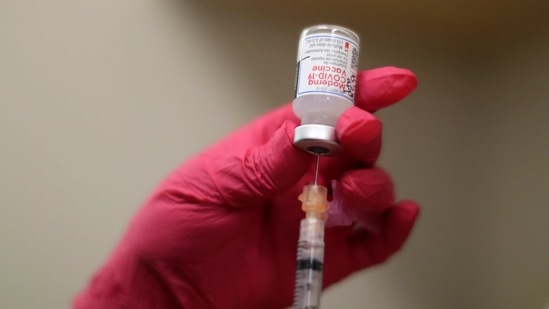Look at number of people dying post-vaccination: Efficacy number that matters
People aren’t only worried about dying from Covid; they’re also worried about getting so-called long Covid and transmitting the disease to others even after they’re vaccinated.
Something sounds fishy when public health experts advise us to take whatever vaccine is available even though some vaccines show much more promising efficacy numbers than others. And it’s understandable that people would want to shop for the best vaccine. Americans are accustomed to the idea of consumer choice in pharmaceuticals — why else would we have so much direct-to-consumer drug advertising? But cut through the noise and there’s only one thing that really matters: all three FDA-authorized vaccines seem to work equally well — close to 100% — at preventing hospitalization and death.

That message has gotten diluted in the reporting around the efficacy numbers for different vaccines. The efficacy numbers associated with the Moderna and Pfizer vaccines came in at around 95%, while the newly approved Johnson & Johnson vaccine has shown a less impressive 72% in the US, and even lower in other countries. As risk communication expert Peter Sandman says, people remember from school that 95% usually earns and A, and 72% a C at best.
The problem is that numbers most touted to measure “efficacy” measure various degrees of symptoms plus a positive test — criteria that vary some from trial to trial. They don’t measure what’s most important: protection against hospitalization and death.
And on that score, all three vaccines are outstanding. So public health experts are justified in suggesting people take the first vaccine available.
People aren’t only worried about dying from Covid; they’re also worried about getting so-called long Covid and transmitting the disease to others even after they’re vaccinated. There’s no data one way or the other one whether vaccination cuts the risk of long Covid for those who get sick, but all the vaccines appear to reduce the number of people who get mild illness or asymptomatic cases, and thereby probably reduce transmission.
While the Pfizer and Moderna vaccines work the same way, Johnson & Johnson’s vaccine works through a different mechanism. The first two use messenger RNA, and the latter uses DNA, which is ferried to the nucleus of cells with a different kind of virus, called an adenovirus, modified so it can’t replicate itself and cause disease. All three vaccines have good safety data, and all of them prompt the body to produce T-cells, which retain a sort of memory of the protein and attack it.
One reason for the seemingly stark difference in efficacy numbers is that the clinical trials were held in very different groups of people. The Johnson & Johnson trial enrolled more people with hypertension, diabetes and HIV, as well as more people over 60, says University of California infectious disease doctor Monica Gandhi. Johnson and Johnson’s results also came from testing people in South Africa and Latin America at a time when new variants of the virus were already rampant. The important thing to note, says Gandhi, is that nobody who got the vaccine in the clinical trials — for any of the shots — was hospitalized for Covid-19. None of them died. None even got a severe enough case to require medical intervention at all.
The absence of hospitalizations and deaths in the Johnson and Johnson trial looks even more impressive given that the volunteers included people who were more vulnerable to dying from the virus. Gandhi says she’d advise her own 80-something parents to get that shot if it was the first one available.
Earlier this year, Yale University epidemiologist Robert Hecht had told me in an interview that he thought more lives could be saved by vaccinating people in so-called hot spots where there was an unusually high burden of disease. I called him back and asked whether the single-shot advantage of the Johnson and Johnson vaccine might make it a good choice for those places. He agreed it would, but worried about the perception that it’s an inferior vaccine, which could incite outrage about racial or socioeconomic injustice.
Other experts are also wrestling with this question, since the Johnson & Johnson vaccine is cheaper than the other approved shots, delivered in a single dose, and requires only ordinary refrigeration rather than ultra-cold storage. That would make it a practical choice for vaccinating homeless people, and those in hard-to-reach rural areas, but again, experts are wrestling with the perception of inequality.
That concern isn’t justified, given a proper interpretation of the data. Even the perception of unfairness, though, could be harmful. Giving people the ability to vaccine-shop might help more hesitant people feel more in control and less coerced — but also inadvertently prolong the pandemic.
Getting the one-shot vaccine out as fast as possible and focusing on virus hot spots would save lives and hasten a return to some level of normal life. It’s now up to the public health community to send out a clearer message and get the public on board.
The most important numbers here aren't 95% or 72%, but 0%: the number of vaccinated people who've died from the virus. When that's the emphasis, the message to get the first available vaccine makes a lot more sense.



